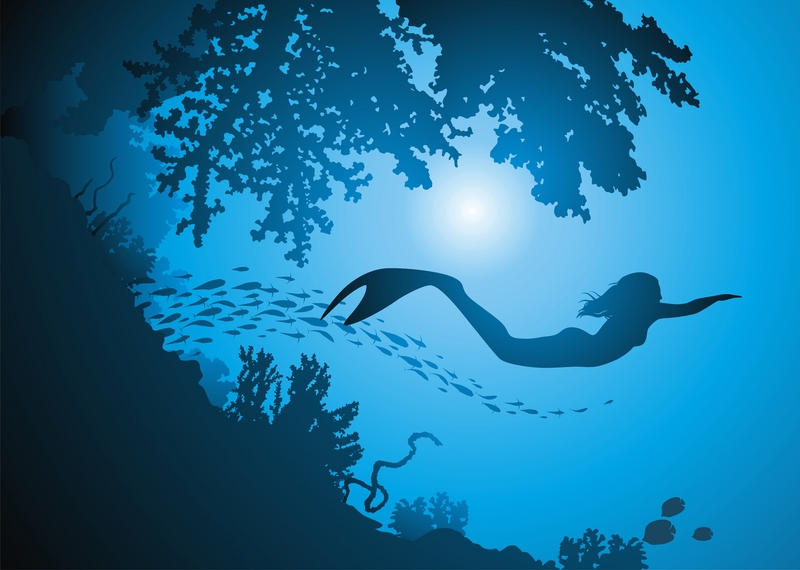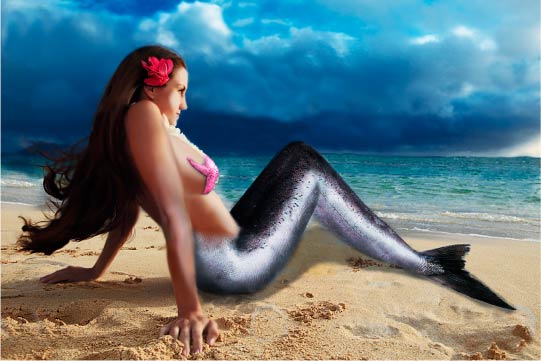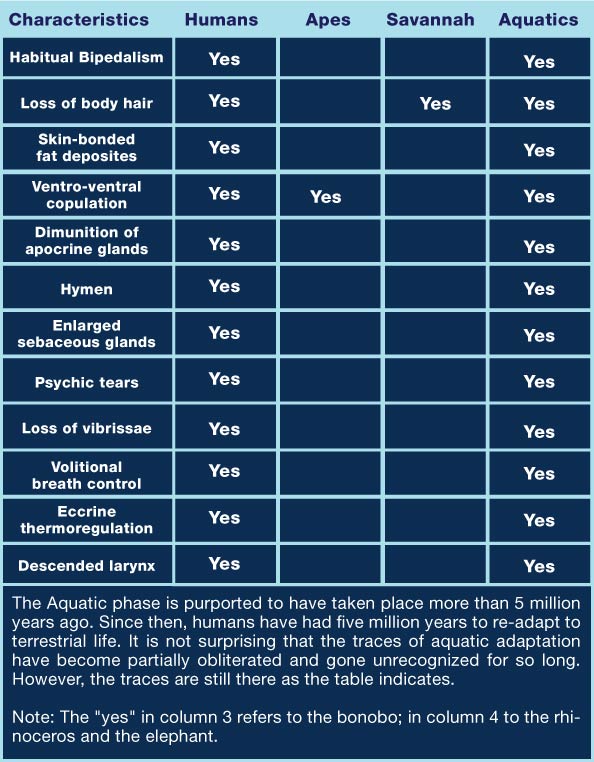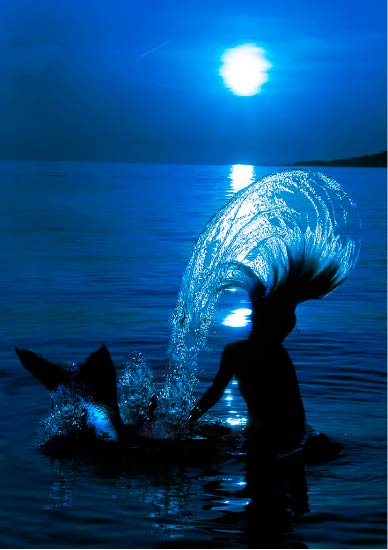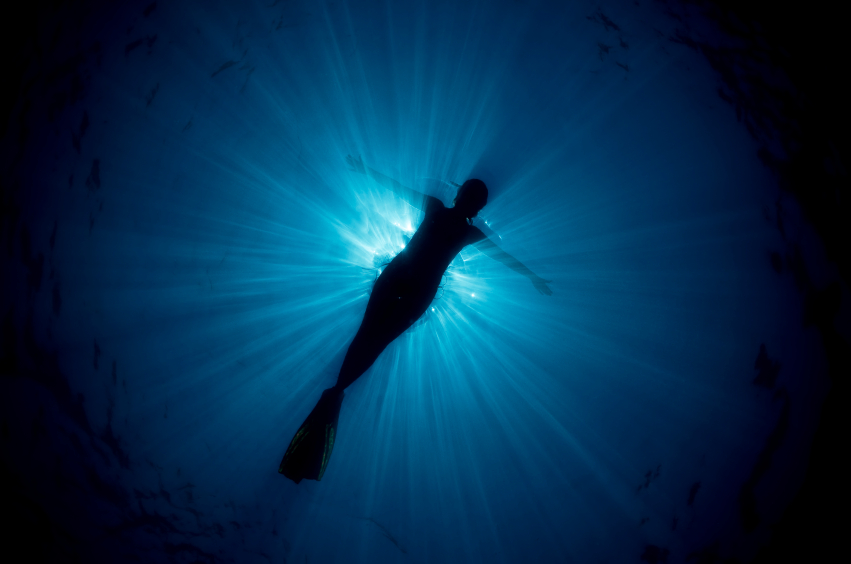by Glenn R. Swift
For countless centuries, ancient mariners recounted stories of the legendary mermaid. Fascinatingly, these strangely magnificent sea creatures continued to show up in the writings of numerous cultures for thousands of years. Many of these cultures had no contact with each other; yet, their descriptions of these wondrous “almost human” beings were strikingly similar. How could this be? Is there any scientific evidence to support their existence?
Well…yes, there’s evidence. Of course, as any good scientist (or lawyer for that matter) will tell you—all evidence is not proof. But yes, there’s evidence and this evidence was the focus of a speculative documentary recently aired on Animal Planet: “Mermaid: The Body Found.”
So what is this evidence?
Some researchers in the scientific community have suggested that millions of years ago, during a period of massive coastal flooding, it is likely that some of our human ancestors moved inland, while others went into the ocean in a search for food. This theory forms the basis of the show, and, while the idea that mermaids might be real may sound absurd on the surface, filmmaker Charlie Foley says further study suggests it might not be “all wet.”
“There are cases of animals going from terrestrial to aquatic,” Foley told The Huffington Post. “And when you look at what makes humans unique among other terrestrial animals, it raises some interesting questions on whether mermaids might be plausible.”
Aquatic Ape HYPOTHESIS
Was man more aquatic in the past? Sir Alister Hardy (1896-1985), one of Britain’s most famous marine biologists, definitely thought so.
Hardy was the first to propose this idea back in 1960 in a New Scientist article, “Was Man More Aquatic in the Past?” His idea became known as the highly controversial Aquatic Ape Hypothesis. Interestingly, Hardy had first come to support his groundbreaking theory some thirty years earlier, but kept it to himself out of fear that his radical idea might very well jeopardize his esteemed position. (Hardy went on to a renowned academic career as a Professor of Zoology at Oxford and in 1957 was knighted by Queen Elizabeth II in recognition of his monumental contributions to the field.)
The Aquatic Ape Hypothesis supports the idea that during the transition from the last common ancestor we shared with apes to hominid (human), humans went through an aquatic stage. This stage is believed to have resulted in “aquatic ape-like” creatures.
The Aquatic Ape Hypothesis makes it possible to believe that while we evolved from apes into terrestrial humans, our aquatic relatives turned into something strangely similar to the fabled mermaid. As evidence that humans once evolved into aquatic creatures, the theory cites some of the striking differences between man and other primates and the many features we share with marine mammals, such as:
- Webbing between fingers (other primates don’t have this)
- Subcutaneous fat (insulating from cold water)
- Control over breath (humans can hold breath up to 20 minutes, longer than any other terrestrial animal)
- Loss of body hair (hair creates drag in water)
- Instinctive ability to swim (human babies are able to do this)
- A highly developed brain, which depends on nutrients provided by seafood
Today, the leading advocate for this theory is another Brit, Elaine Morgan. A distinguished author, Morgan has written a number of books over the past forty years supporting Hardy’s idea. A doctor of letters from Wales, Morgan is a writer by trade, but her work has garnered increasing acceptance among the scientific community. In fact, like her mentor, the now 92-year-old Morgan was knighted three years ago for her “services to literature and to education.”
In the recently aired, two-hour special “Mermaids: The Body Found,” Animal Planet dives deep into the idea that mermaids may have been real, and, even better—related to humans!
“It’s a very radical theory on human evolution, but we have approached an age-old myth and really chased its origins,” Animal Planet honcho Charlie Foley told FOX411’s “Pop Tarts” column. “It has been compiled in a way that is very compelling, making us think that mermaids might not just be mythical creatures,” Foley added.
The show unravels mysterious underwater sound recordings and presents a bone-chilling argument for the Aquatic Ape Theory, reasserting Hardy’s original proposition that during the transition from apes to hominid, some humans went through an aquatic stage and resulted in “aquatic ape-like” creatures.
According to Foley, “Mermaids: The Body Found” is just the first tiny ripple in a tide of discoveries that he anticipates will be brought to the surface in the coming years.
“It all comes back to the question of ‘Where do we come from?’ as there is so much speculation and questioning,” he said. “The surface of the moon has been examined more closely than aspects of the deep sea.”
So, are mermaids real?… Just maybe.
To watch the controversial Animal Planet video (albeit with Chinese subtitles), click here: http://bit.ly/K7IKO5. To watch a fascinating BBC video about the Aquatic Ape Hypothesis, click here: http://bit.ly/N6u7g0. And for another great video about Elaine Morgan (mind you, not the greatest quality at times) and her ideas supporting the AAH, click here: http://bit.ly/Y5TpC.

